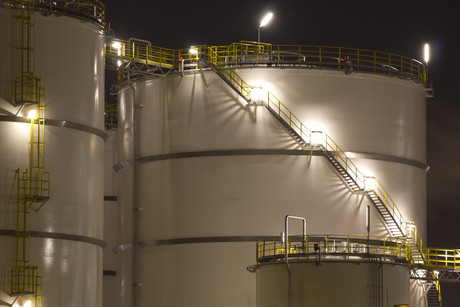Politicians' short memories? Frydenberg announces fuel security review

Minister for the Environment and Energy Josh Frydenberg has announced that “the Turnbull government will assess Australia’s liquid fuel security to help deliver affordable and reliable energy”.
The press release goes on to state that “Australia’s liquid fuel supply increasingly depends on overseas sources and relies on market forces to maintain reliability and affordability. The assessment will identify whether the government should take further steps to ensure Australia’s domestic fuel supply is reliable.
“The assessment will also help inform Australia’s plan to return to compliance with the International Energy Agency’s emergency stockholding obligations by 2026.”
Our politicians certainly have short memories.
It is well known that Australia’s fuel reserves have been far below meeting our IEA fuel reserve obligations for years. In 2015 the Senate Standing Committee on Rural and Regional Affairs and Transport released a report titled ‘Australia’s transport energy resilience and sustainability’. The committee’s recommendations were:
- The government should undertake a comprehensive whole-of-government risk assessment of Australia’s fuel supply, availability and vulnerability.
- The government should require all fuel supply companies to report their fuel stocks to the Department of Industry and Science on a monthly basis.
- The government should develop and publish a comprehensive Transport Energy Plan directed at achieving a secure, affordable and sustainable transport energy supply.
Frydenberg’s press release would seem to suggest that in three years, none of these recommendations have been followed up.
In addition, a comprehensive analysis of Australian fuel supply chain risk, conducted by the National Roads and Motorists Association (NRMA) in 2013, titled ‘Australia’s Liquid Fuel Security: A Report for NRMA Motoring and Services’, stated that:
“The very small consumption stockholdings of oil and liquid fuels in Australia, combined with what appears to be a narrow assessment of our fuel supply chain vulnerabilities, does not provide much confidence that the strategic risks to our fuel supply chain are well understood and mitigated by our nation’s leaders, the business community or the population at large.”
The IEA requirements are for 90 days of domestic fuel reserve. According to the government’s own 2015 Senate Committee, the government already knew this was a major problem. Below are verbatim quotes from the report:
“3.7 According to Engineers Australia, at any one time, Australia’s total stockholding of oil and liquid fuel comprises of two weeks of stocks at sea, 5 to 12 days of supply at refineries, 10 days of refined stock at terminals and 3 days of stocks at service stations.”
“3.8 In terms of the types of stock available in the country, the 2013–14 APS revealed that at the end of July 2014, monthly industry stocks were as follows:
- 20 days of automotive gasoline;
- 17 days of aviation turbine fuel; and
-
16 days of diesel oil (including automotive diesel oil, industrial and marine diesel oil).”
“3.9 Noting these stockholding figures, NRMA suggested that Australia’s total stocks of fuel and oil held within the country were not only precariously low but also set to decline. However, the Australian Government does not mandate any minimum levels of fuel stock to be held by industry in the country or mandate the reporting of the actual industry fuel stockholding levels. Therefore, fuel companies are not required to meet any fuel storage level but rather, concentrate on fuel delivery for reliability. Their focus is on just-in-time security of supply to keep their costs down. For this reason, Australia is reliant on market forces to ensure secure access to transport fuel.”
In April 2015, the Department of Industry and Science published its Energy White Paper 2015 in which the department estimated that building a domestic fuel reserve to meet the IEA requirement would require an investment of several billion dollars over a decade.
It seems that all this has gone down the federal government collective memory hole. No surprises there. The last quote above also reminds us that our government still believes in the myth that allowing market forces to drive everything is good for everyone. Not even the US government believes that, when it comes to critical infrastructure such as a fuel or gas reserve. Sometimes governments just have to take control.
Much of the review work has already been done. Is this announcement actually about following the recommendations (the press release does not say), or is it once again the government spending taxpayers’ money to redo something done before? Only time will tell.
Omron and Cognizant partner on IT–OT integration
Omron Corporation and Cognizant have announced they have signed a strategic partnership to...
Greensteel Australia to build next-generation steel mill
Greensteel Australia has announced it has placed an order to purchase equipment for its...
Researchers design water filter that removes PFAS molecules
Researchers at Monash University have developed a water filtration membrane that effectively...








